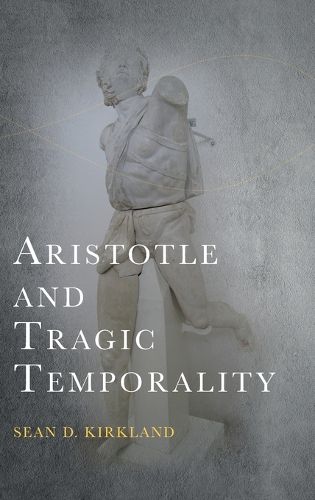Readings Newsletter
Become a Readings Member to make your shopping experience even easier.
Sign in or sign up for free!
You’re not far away from qualifying for FREE standard shipping within Australia
You’ve qualified for FREE standard shipping within Australia
The cart is loading…






Aristotle and Tragic Temporality treats a theme that has drawn scholarly attention for millennia: Aristotle on time and our experience of it. It does so, however, in a wholly unprecedented way, grounding its interpretation in his Poetics and Ethics, rather than the natural philosophy of the Physics. Sean D. Kirkland first takes up Aristotle's discussion of our tragic temporal situatedness-our having to act, think, and live always between a determining past we can never fully master and a projected future we can never fully anticipate. It is this condition that comes powerfully to light for Aristotle on stage in the performance of a tragic drama. The familiar Aristotelian 'virtue ethics' then becomes something radically new in the transforming light of the Poetics' temporality - an outline of how humans can inhabit that irremediably tragic condition, never overcoming or suspending it, and arrive nonetheless at something like happiness and excellence.
$9.00 standard shipping within Australia
FREE standard shipping within Australia for orders over $100.00
Express & International shipping calculated at checkout
Aristotle and Tragic Temporality treats a theme that has drawn scholarly attention for millennia: Aristotle on time and our experience of it. It does so, however, in a wholly unprecedented way, grounding its interpretation in his Poetics and Ethics, rather than the natural philosophy of the Physics. Sean D. Kirkland first takes up Aristotle's discussion of our tragic temporal situatedness-our having to act, think, and live always between a determining past we can never fully master and a projected future we can never fully anticipate. It is this condition that comes powerfully to light for Aristotle on stage in the performance of a tragic drama. The familiar Aristotelian 'virtue ethics' then becomes something radically new in the transforming light of the Poetics' temporality - an outline of how humans can inhabit that irremediably tragic condition, never overcoming or suspending it, and arrive nonetheless at something like happiness and excellence.